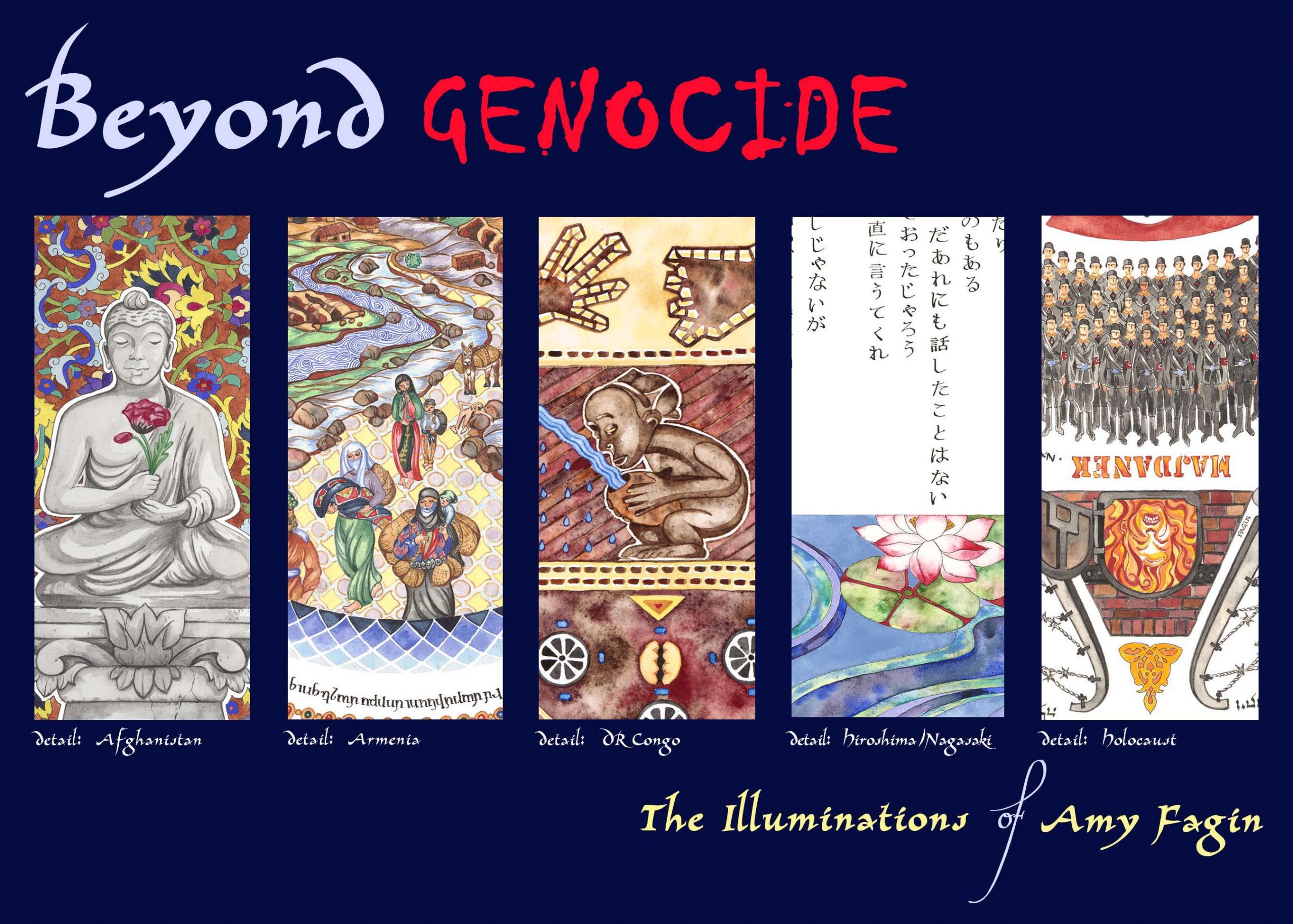On literary works
The international relevancy and impact of vibrant world literature that analyses an aesthetic conveyance and response to mass violence has never been more timely and potentially globally catalytic. The world of letter arts represents a consortium of deeply complex genres that demand artistic reflection and reader appreciation toward awareness and understanding in the creative exploration of the nature and consequences of mass violence. Critical literature that resonates across spatial and temporal limitations harnesses the power to impact national and international dialogues on “finding words in the age of violence”. This section will cover foundational and current resources on traditional and hybrid forms of literary expression in three main categories: fiction, creative non-fiction, and poetry.
God, Gulliver, and Genocide: Barbarism and the European Imagination 1492 – 1945: “This book looks afresh at how we have confronted the idea of “barbarism,” in ourselves and others, from the conquest of the Americas to the Nazi Holocaust, through the voices of many writers, including Montaigne, Swift and Shaw.”
The Complete Works of Primo Levi: This volume gathers all fourteen of Levi’s books—memoirs, essays, poetry, commentary, and fiction into three volumes. The Italian-born chemist is considered a heroic figure in the annals of twentieth-century literature. His body of work extends beyond his experience as a survivor and Holocaust memoirist to one of the twentieth century’s greatest writers. The Complete Works of Primo Levi represents a magisterial collection and finally gathers all of Levi’s fourteen books—memoirs, essays, poetry, and fiction
Genocide in Contemporary Children’s and Young Adult Literature: This comprehensive work of scholarship on children’s and young adult literature on texts representing post-1945 genocides scales seven countries and cultures. Considerations on evaluation for the works introduced and analysed take into account a “constructive theoretical lens” through which to address age appropriateness, post-colonial bias, and a “life-affirming” informational approach.
Genocide Genres: Reading Atrocity Testimonies: This philosophy dissertation “investigates the transnational circulation of atrocity testimony. The paper compares the “production and reception of atrocity narratives across Holocaust studies, the modern human rights movement and international criminal law. The argument sets forth parameters for the regulation of their institutional function as to which testimonies are selected, how and when they are read.
The Holocaust of Texts: Genocide, Literature and Personification: “In this bracing study, Amy Hungerford argues that personification has become pivotal to our understanding of both literature and of genocide. Personified texts, she contends, appear frequently in works where the systematic destruction of entire ethnic groups is at issue. Ultimately, she argues that the personification of texts in these works is ethically corrosive. When we exalt the literary as personal and construe genocide as less a destruction of human life than of culture, we esteem memory over learning, short-circuit debates about cultural extinction, and drastically limit our conception of literature and its purpose.
Forgotten Genocides of the 20th Century: A Compilation of Poetry: Dedicated to the memory of the destruction of Armenians, Assyrians, Greeks in Ottoman Turkey. The destruction of native Americans. The annihilation of Gypsies during WWII. Rwanda, Darfur and other victimized groups whose memory has been forgotten.”
The Origin of Others: This work by “America’s foremost novelist, (Toni Morrison) reflects on the themes that preoccupy her work and increasingly dominate national and world politics: race, fear, borders, the mass movement of peoples, the desire for belonging. What is race and why does it matter? What motivates the human tendency to construct “Others”? Why does the presence of “Others” make us so afraid?”
Modern Wars, Genocide, Survival and Life Writing: Designed as a seminar platform for literary expression this novel “experiential” literary genre was produced by the American Comparative Literature Association. “Hybrid genres in which poetry and fictional forms merge with official and personal documentation, photography, and archival research.”
World Literature Today: Genocide in Fiction: This web resource list offers brief introductions to globally distributed and popular literary works that address genocide through fiction and non fiction genres. The article’s stated goal is to “explore the human capacity for darkness and more importantly, healing”.
Genocide Literature in Middle and Secondary Classrooms: This 2017 volume inquires into the ethical implications and “illuminations” of reading and teaching genocide through literature and its impacts on reading practices withing education reform in 21 century classrooms. The parameters of aesthetic of fiction in genocide literature and strategies for evaluating learning criteria are outlined and analyzed in this work.
Speaking of Violence: The Politics and Poetics of Narrative in Conflict Resolution: “Drawing on narrative theory, this book defines conflict as a narrative process, examines the politics of narrative violence in conflicts, and offers a critical narrative theory, not only for a new definition of conflict, but also as an ethics for both conflict analysis and conflict intervention. Exemplary case analyses include some of the critical conflicts in world today, such as the Middle East, environmental conflicts, and the immigration wars in the US.”
Literary Responses to Mass Violence: This unique publication is a collection of compositions which reflect on conversations based on a 2003 symposium held at Brandeis University which brought together 12 writers and scholars to narrate three themes: “Literature and Testimony”, Nation, Population and Language”, and “Finding Words in an Age of Violence”.
Journalism and Memory: “This is the first book to address the complex relationship between journalism and collective memory, which has, until now, been insufficiently addressed despite decades of engagement. International in scope, the collection brings together leading scholars from the US, the UK, France, Germany, Sweden, Argentina, Israel and Australia, all of whom are invested in clarifying this important relationship, and includes an epilogue from Paul Connerton. An essential, multidisciplinary volume dedicated to memory studies, the book provides a new prism for thinking about memory work alongside journalism studies.” (Palgrave MacMillan)
.




